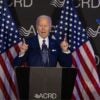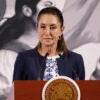Special counsel Robert Mueller said Wednesday that his report speaks for itself and he doesn’t plan to speak again about his nearly two-year investigation, even as many Democrats in Congress clamor to hear more.
Mueller, a former FBI director as well as federal prosecutor, also made a subtle reference to impeachment of President Donald Trump and addressed a reported disagreement with the attorney general.
“I hope and expect this to be the only time I speak to you on this manner. I am making this decision myself,” Mueller told reporters at the Justice Department.
The Daily Signal depends on the support of readers like you. Donate now
House Democrats have said they want Mueller to testify on Capitol Hill. When a reporter asked after his statement whether he would respond to a congressional subpoena, Mueller replied, “No questions” and walked off stage.
Mueller, who probed Russian meddling in the 2016 presidential campaign and any conspiracy with Trump’s campaign, largely summarized what his 448-page report says.
“No one is telling me I can or should testify or speak further about this matter. There has been discussion about an appearance before Congress,” Mueller said. “Any testimony from this office would not go beyond our report. It contains our findings and analysis and reasons for the decisions we made. We chose those words carefully, and the work speaks for itself.”
The special counsel said the investigation found “insufficient evidence” of a broader conspiracy between Trump’s presidential campaign and Russian operatives.
Mueller also looked into whether Trump obstructed justice by trying to impede the probe as the investigation went on.
With regard to neither accusing nor exonerating Trump of obstruction of justice in his report, Mueller referred to Justice Department guidelines that say a sitting president cannot be indicted:
Under longstanding department policy, a president cannot be charged with a federal crime while in office. That is unconstitutional. Even if the charge is kept under seal and hidden from the public view, that too is prohibited. The special counsel’s office is part of the Department of Justice and by regulation it was bound by that department policy. Charging the president with a crime was therefore not an option we could consider.
Attorney General William Barr said during a press conference ahead of the release of the Mueller report that a 2000 opinion from the Justice Department’s Office of Legal Counsel holding that a sitting president can’t be indicted was not the only reason Mueller decided against seeking to indict Trump.
“He was not saying that but for the OLC opinion, he would have found a crime. He made it clear that he had not made the determination that there was a crime,” Barr said of Mueller on April 18.
On Wednesday, though, Mueller implied that the Justice Department guidelines on a sitting president, which go back to 1973, did determine his decision.
“It would be unfair to accuse someone of a crime when there can be no court resolution,” Mueller said.
In an apparent nod toward the option of impeachment, Mueller noted that the OLC opinion also reads: “The Constitution requires a process other than the criminal justice system to formally accuse a sitting president of wrongdoing.”
Mueller’s written report, released with some redactions by the Justice Department in April, concluded that “the investigation did not establish that members of the Trump Campaign conspired or coordinated with the Russian government in its election interference activities.”
On the question of obstruction of the investigation, the Mueller report states that “while this report does not conclude that the president committed a crime, it also does not exonerate him.”
Trump asserted in a tweet that “nothing changes” based on Mueller’s statement.
“Nothing changes from the Mueller Report. There was insufficient evidence and therefore, in our Country, a person is innocent,” Trump tweeted. “The case is closed! Thank you.”
House Judiciary Chairman Jerry Nadler, D-N.Y., who would oversee any impeachment inquiry, issued a statement strongly critical of Trump that didn’t address Mueller’s desire to be silent on the matter going forward. Nadler said, in part:
Although Department of Justice policy prevented the Special Counsel from bringing criminal charges against the President, the Special Counsel has clearly demonstrated that President Trump is lying about the Special Counsel’s findings, lying about the testimony of key witnesses in the Special Counsel’s report, and is lying in saying that the Special Counsel found no obstruction and no collusion.
Given that Special Counsel Mueller was unable to pursue criminal charges against the President, it falls to Congress to respond to the crimes, lies and other wrongdoing of President Trump—and we will do so.
White House press secretary Sarah Huckabee Sanders released a statement suggesting the matter is over.
“The special counsel has completed the investigation, closed his office, and has closed the case. Mr. Mueller explicitly said that he has nothing to add beyond the report, and therefore, does not plan to testify before Congress,” Sanders said, adding:
The report was clear—there was no collusion, no conspiracy—and the Department of Justice confirmed there was no obstruction. Special Counsel Mueller also stated that Attorney General Barr acted in good faith in his handling of the report. After two years, the Special Counsel is moving on with his life, and everyone else should do the same.
In his statement from behind a lectern at the Justice Department, Mueller also addressed a reported rift between himself and Barr about whether to release portions of the report or all of it.
Mueller delivered the report to Barr on March 22. After first releasing the main findings March 24 in a four-page letter to Congress, the attorney general released a lightly redacted version of the report April 18 once a team had reviewed it for information protected by law.
“At one point in time, I requested that certain portions of the report be released. The attorney general preferred to make the entire report public all at once,” Mueller said.
“We appreciate that the attorney general made the report largely public, and I certainly do not question the attorney general’s good faith in that matter.”































